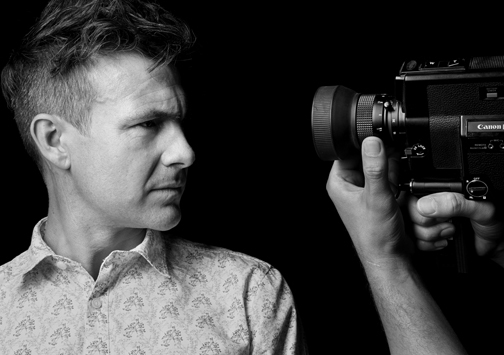Age: 39
Job Title: Documentary filmmaker
Why He’s Top 40: Anthropologist turned Gemini-winning filmmaker, Thompson brings science to life through the art of storytelling.
Key To Success: “I become personally involved in the stories we tell. We call it hosting, but, really, it is genuinely my journey.”
For Niobe Thompson, filmmaking is a sometimes excruciating journey of discovery. The 2012 documentary, The Perfect Runner, tested his lean frame in the lung-searing highlands of Ethiopia, the bone chilling tundra of Siberia and while running over 100 kilometres in the Canadian Rockies Death Race. The risk of failure was real, whether that meant nearly washing down a swollen Siberian river in a rusty Soviet-era amphibious tank or flaming out of the race after running for hours on a sprained ankle.
Thompson had his first taste of filmmaking less than a decade ago as a Cambridge scholar in Siberia doing PhD research in Arctic anthropology. Alberta filmmaker Tom Radford dropped by to document the work, and while the footage never saw an audience, the experience planted a seed.
In 2006, Thompson, an outdoorsy Alberta boy raised by a canoe-building dad and an artist mom, returned home, thanks to a University of Alberta fellowship for exceptional researchers. Were he a hedgehog, he might have remained an academic, he says, but he’s a fox. “A hedgehog stays on one subject all his life, whereas a fox flits from one thing to another like it says in [philosopher] Isaiah Berlin’s academic essay. I wanted to use my training as a scientist to explore many different subjects.”
Toward that end, he teamed up with Radford to launch Clearwater Documentary in 2007. The duo’s films have since garnered a shelf full of awards, including two Geminis, and recognition by trade magazine Realscreen Global as one of the 100 most influential factual and documentary production companies in the world.
Before film and anthropology, Thompson was exposing such issues as Sierra Leonean blood diamonds and the international small arms trade as a writer. Now, he’s using film to make social change. One of The Nature of Things episodes he produced and directed, Tipping Point: The Age of the Oil Sands, used the research of David Schindler and the advocacy of filmmaker James Cameron to raise international ire and help extract a provincial promise of revamped regulations. “It shows you that documentaries can be more than entertainment.”
